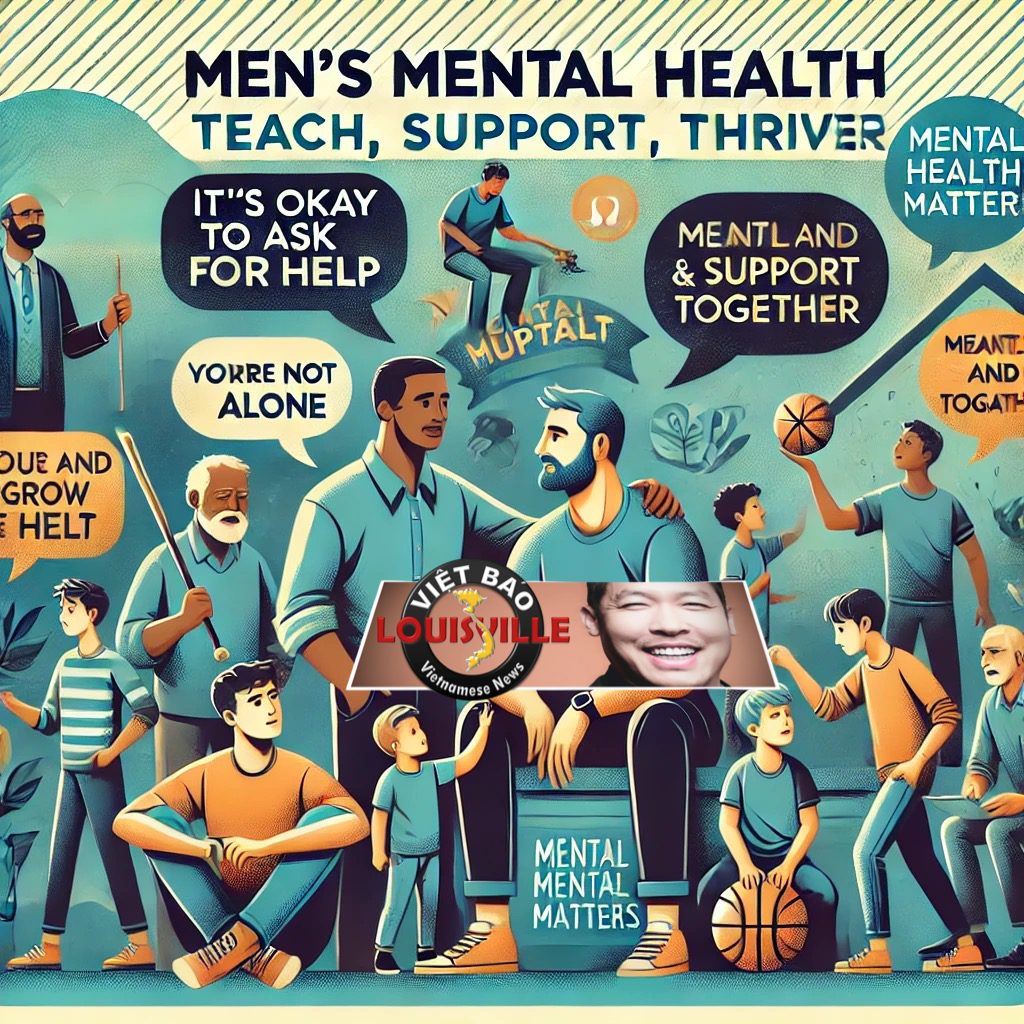As fathers, mentors, and role models, it’s our responsibility to guide young men and boys to understand that being a man is not about meeting unrealistic societal expectations but about embracing their true selves. Let’s teach our sons that it’s perfectly okay to just be, without judgment or comparison. Here’s why this matters and how we can achieve it.
Mental Health Matters
In the United States, a man dies by suicide every 30 minutes. This alarming statistic highlights the immense pressure men face, often feeling they must live up to ideals of strength and stoicism. These pressures can prevent them from seeking help for mental health issues, leading to tragic outcomes .
Healthy Coping Mechanisms
Alcohol is often used as a coping mechanism, with men consuming it at higher rates, sometimes every few minutes, to manage stress, anxiety, and depression. This is a maladaptive strategy that can worsen mental health over time. Instead, we should teach young men healthier ways to cope with their emotions, such as talking about their feelings, engaging in physical activities, and seeking professional help when needed .
Education and Purpose
The educational gap between men and women is widening. As of 2021, 39% of women aged 25 and older have a bachelor’s degree compared to 37% of men. Many men drop out of college due to financial pressures or the need to work to support their families . This gap has been exacerbated by technology and the automation brought about by AI. Men are at risk of not being able to work, not for survival per se, but for the purpose of being men. We need to emphasize the importance of education and help young men find purpose and direction in their studies and careers, ensuring they have the support needed to succeed.
Financial Pressures
Men often feel the weight of financial responsibilities. Economic instability can lead to increased stress and mental health issues. It’s essential to teach our sons about financial literacy, planning, and the importance of seeking help during tough times. Understanding that it’s okay to ask for support and to share financial burdens can reduce this pressure .
The Impact of Technology
The rise of AI and automation is changing the job landscape, putting many traditional roles at risk. Men may find themselves struggling to adapt to these changes, leading to feelings of inadequacy and a lack of purpose. It’s crucial to prepare young men for the future by encouraging adaptability, continuous learning, and the development of new skills that align with emerging technologies .
Creating a Supportive Environment
To help our boys grow into healthy, well-rounded men, we need to create an environment where they feel safe to express their true selves without fear of judgment or comparison. This means:
• Encouraging open communication about their feelings and struggles.
• Leading by example and showing them that seeking help is a sign of strength, not weakness.
• Providing opportunities for them to explore their interests and passions without the burden of societal expectations.
• Teaching them resilience and healthy coping mechanisms to deal with life’s challenges.Call to Action for Dads
Dads, let’s stand up and redefine what it means to be a man. Let’s teach our boys that being a man is about being true to themselves, seeking help when needed, and supporting each other. It’s time to break down the barriers of outdated stereotypes and build a future where our sons can thrive as their authentic selves. Together, we can foster a generation of men who are strong, healthy, and unafraid to just be.
Overcoming Mental Health Challenges
By leading by example and demonstrating healthy ways to overcome mental health challenges, we can teach young men and boys the importance of mental well-being. Engage in activities that promote mental health, avoid toxic substances, and emphasize the value of mental health care. Show them that true strength lies in acknowledging and addressing their struggles.
Final Thoughts
The journey to raising well-rounded men starts with us. Let’s commit to being the role models our boys need, showing them that being a man is about being real, being present, and being supportive. By doing so, we can help them find their purpose and thrive in a rapidly changing world.





